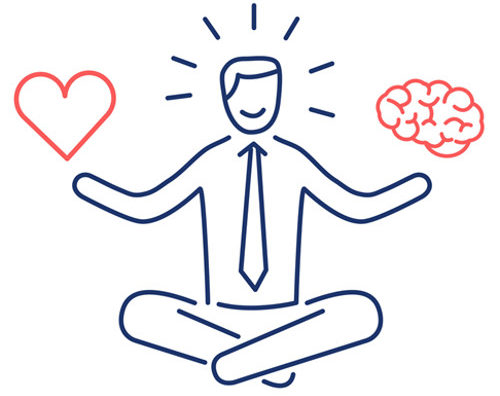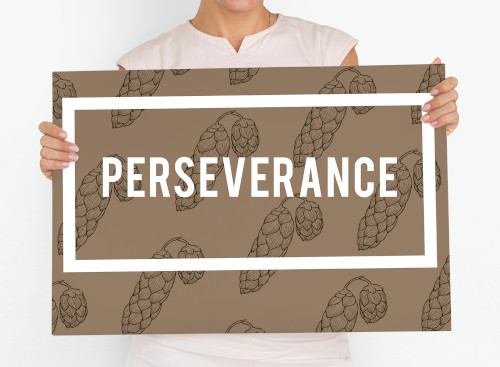Growing your culture and increasing efficiency will grow your finances. The Resiliency Solution will design a plan catered to your organization to increase stability and growth.

Nursing and related healthcare fields are unarguably some of the most challenging fields in which to work, and there have historically been high rates of burnout in the field– even without contending with a global pandemic. Since the start of the COVID-19 pandemic, the power of resilience in healthcare workers has been demonstrated more than ever before. Between multiple variants of the coronavirus, and the ever-changing nature of the appropriate, scientifically validated and approved response, healthcare workers are being forced to embrace resiliency in unprecedented ways.
“The ability to return to regulation is the essence of resilience” –Deb Dana.

Resilience is not something we are born with. It is something we must work at and develop with awareness. Although mental toughness and personal strength may seem like resilience, resilience is about the flexibility and ability to recover from stressful situations. It is knowing how to get back to your optimal functioning more quickly and respond appropriately, rather than being overwhelmed by the emotions and stress that will frequently arise. When the pressure rises, resilience can help with adaptability. Resilience requires emotional awareness, to notice that things are shifting or becoming more stressful and responding accordingly.
The pandemic has been a particular source of stress and adversity for healthcare professionals that we have never faced in recent history. Today, society depends on the consistency and presence of healthcare workers during some of the most challenging times of everyone’s lives. And at the same time, healthcare workers are facing the same challenges as the rest of the population in their own personal lives. “Healthcare workers constitute the most affected group of people in the fight against the COVID-19 virus. Among the common mental effects of the pandemic are anxiety, panic, depression, anger, confusion, ambivalence and financial stress.” Bozdağ, F., & Ergün, N. (2021). Psychological Resilience of Healthcare Professionals During COVID-19 Pandemic. Psychological reports, 124(6), 2567–2586. https://doi.org/10.1177/0033294120965477
Clearly, resilience is critical to respond effectively to the ever-changing landscape and challenges of the modern medical field. Resilience is not about resistance to stress and rigid boundaries. Resilience requires a different mindset. It’s about the bounce back, not simply the resistance to stressful situations.
Although systemic changes are certainly needed to address burnout and promote resilience, in the short term, individuals need to be equipped with the resources needed to cope with the demands of their jobs or lives in a skillful way. The risk of burnout and losing highly skilled professionals increases as hospitals fill. Great resilience, systemically and individually, is necessary to retain these valuable professionals.
So how can individuals embody resilience? By taking the time to increase emotional awareness, and by listening to what our body is trying to tell us. Creating the space to listen can help us to respond skillfully rather than react impulsively when we are faced with stress. Techniques such as deep breathing, which stimulate the vagus nerve and allow the body to connect to safety, can open space between a rising activating emotion and how we respond to it. When we practice things like deep breathing and meditation, we can restore our nervous system to its innate ability and capacity for resilience. Developing these practices as a routine part of life, allows them to be most effective at creating resiliency.

Resilience is far more than a mindset or awareness. It’s an embodied nervous system realignment. Practices that nurture our nervous system allow us to successfully scan for safety and connection. We can then self-regulate, co-regulate, and find the pathway to greater and more persistent resilience.
Social engagement plays a role as well. When we have a strong support system, our ability to co-regulate increases. The more experiences we have of co-regulation, the greater our ability to self-regulate. If we feel safe and connected both to those around us in the workplace, as well as family and friends, our capacity for resilience once again increases.
Resilience is not something that stands alone, it is integrated into all parts of life. It is an interconnected way of being in the world, an embodied practice, residing and manifesting in connecting both with self (physical and emotional) and other people. And it cannot persist without awareness and continued practice.
After a bad experience, stress, and traumatic exposure, individuals have different psychological reactions and even their social networks may be disrupted. Traumatic events can generate a range of emotions such as feelings of grief and sadness. Those that are able to work through the emotions and effects of stress and pain and rebuild their lives are called resilient people. But what does personal resilience mean? What about resilience in healthcare?

Personal resilience is the individual ability to withstand, adapt to, and recover from adversity and stress. It involves behaviors, actions, and thoughts that ultimately promote wellbeing and healthy mental status.
Resiliency can appear at different levels changing and developing throughout life. It is about gaining and implementing a set of tools and strategies that help get back to feeling normal again.
This concept of resilience is related to wellbeing because they are both important to prevent mental health problems and they can be good allies in reducing the severity of existing ones. Wellbeing and resilience help develop problem-solving skills, build and maintain interpersonal relationships enhancing the personal ability to perform well in daily life.
Sometimes we may feel out of control, or as if we couldn’t get back to balance. We find it difficult to recover from bad situations and regain stability. Resilience helps develop protection mechanisms against overwhelming experiences and maintain balance during stressful moments. Being resilient can be useful to avoid the development of some mental health issues.
It is not limited to health and balance. It can also improve learning and academic achievements, improve development at work, reduce risky or unhealthy behaviors such as alcoholism, smoking, or the use of drugs. It can also foster increased participation in community and family activities, and it can reduce mortality rate and improve physical condition.
So, how do you build personal resilience? You can build personal resilience through different skills and strategies that will help you manage stress and improve your thoughts during life’s challenges. Resilient individuals rely both on their personal strengths and the support of their loved ones.

Resilience can be demonstrated through different aspects of life. A resilient person will take care of themselves and others daily and during emergencies. They will provide active support to their communities, workplaces, and neighborhoods.
You can recognize a resilient person because they are confident and optimistic about the future because they trust they will overcome present difficulties. They also look physically and mentally healthy and are able to recover fast.

Resilience is developed throughout a person’s life. It is very important that adults and parents promote resilience since childhood because this will strengthen them towards a healthy life. It is advisable to nurture them with the tools to deal with adversity.
Relationships are key to grow a resilient child. If surrounded by caring adults, kids develop vital coping skills. It can also help reverse any physiological change that may have been activated by stress. Support is associated with positive emotions, personal control, motivation, self-esteem, and optimism.

Some attitudes from adults that can help their children develop themselves as resilient individuals are:
What improves resilience? Some techniques to improve resilience are taking care of health, managing stress, and participate actively in community life. Having a healthy lifestyle with exercise and healthy food, good sleep, and a socially connected life are also recommended. Don’t forget to assist people around you and get involved. And find things that are pleasant and that you can enjoy.
Emotional resilience is the smart use of emotions. It is important because it helps recognize and comprehend their own emotions but also others’. It can be useful to express feelings and be able to control them to gain intellectual and spiritual growth.
Emotionally resilient people can guide their emotions through the use of their thinking and behavior, instead of letting their emotions guide their actions.
The lack of resilience affects mental health leading to depression and anxiety. Resilient individuals are able to offset those factors that increase the risk of suffering from some mental health conditions.

This includes being bullied or other previous trauma. On the other hand, people with existing mental conditions can improve their coping ability by practicing resilience.
Resilience in healthcare professionals is the best way to address the unique complexities of the activity. It can benefit efforts to keep patients safe because it means a switch from the traditional focus on errors to consider humans as a defense against failure.
To apply this concept, it is necessary to identify and test mechanisms for measuring and creating resilience in healthcare workers while they go through complicated processes.

Resilience is important in the health care workplace. Within such environments, it becomes a key attribute to cope with demanding situations that both doctors, nurses, and the rest of the staff go through. Health workers are often burned out because of dealing with stressful situations every day.

Resilience in health care workplace can help professionals grow, rather than shrink, from stress. However, first it is necessary to build a culture where employees feel they are important and that their well-being matters.
Some examples of resilience at work in the health profession are doctors or medical practitioners who see their work as a way to conduct patients to be healthier, rather than fixing their problem. This is a positive focus of medicine and it is a resilient point of view.
There are some training programs that health professionals can take to develop resilience. A good course will foster an accurate culture to encourage employees to take good care of themselves. This is especially critical.
Health workers tend to focus on helping others. With training, they learn to focus on themselves as well. Easy tasks and activities such as short walks, stress check-ins and mindfulness practice can help improve that.
Resilience courses for health professionals are formally structured programs that can help them develop abilities to maintain both physical and emotional health, social relationships.
It is useful to create more resilient workforces and a proper culture around them. They can’t help people without empathy and that can be achieved if they are burnout.


Check out these resiliency courses proven to benefit nurses.
As a fundamental part of the health system, nurses need a high level of resilience and emotional intelligence to cope with stressful situations and pressure. Resilience in nursing is the ability to protect themselves from that kind of situations and bounce back after difficulties so that they can recover to their normal state more quickly.
Nurse resilience is important because they are very often at risk of burnout. The care tasks imply huge demands for them and if equipped with resources, skills, and tools to deal with such demands, health centers can reduce the risk of losing them as part of the health workforce.

There are some ways to promote resilience for nurses. One of the most relevant is cultivating awareness and attention. Being aware of their emotions allows them to respond in more rational ways, avoiding automatic reactions. Awareness of all the different aspects of life and time to self-care is part of resilience and help in the recovery process.
Nurses must be encouraged to understand their own feelings from different emotions to be in control of themselves. A useful technique to achieve this is the 3-step breathing practice during a stressful situation that allows them to create space between the feeling created by the emotion and the reaction associated with that.

Resilience is a key value for doctors. To survive their training and formation and then the constant exposure to death and illness, doctors need to cultivate their resilient capacity. It also helps them adapt and be flexible to work in different environments, no matter how cruel or uncomfortable they are.

A resilient doctor can absorb the pressure inherent in medicine, as well as the modern ethical and moral challenges nowadays. They need to adapt in the face of adversity, be committed, persistent and they need to trust their ability while remaining compassionate with patients. Resilience for doctors is a dynamic and complex mechanism that must play in different levels: individual, individual’s environment, and society.
Like any other health care professionals, doctors can train their resiliency. Mindfulness techniques, breathing meditation, reflection, and exercises to improve self-awareness can create great outcomes. They can improve their mood, feel empowered and meaningful, and engage with work even more.
It can also reduce stress and decrease levels of burnout with higher levels of empathy as well as a better understanding and connection with patients. It can create changes both in their personal and professional lives.
NHS Professionals is an association of care workers that belongs to the Department of Health and Social Care in the UK. They have developed their own resilience program to staff, who must support their patients and families during extremely vulnerable times of pain, fear and loss.

They consider that doctors, nurses, and health care professionals have a very emotionally demanding role that can easily lead to burnout increasing the amount of staff resignation, sickness, and shift cancellations. To build higher levels of resilience, they recommend:

If you would be interested in offering a program similar to this for your organization, please contact The Resiliency Solution at 919-525-4559 today.